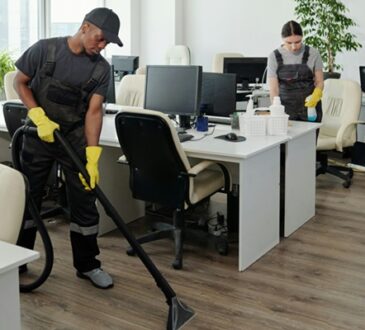Construction projects, no matter how big or small, always leave behind a mess. Cleaning up after the construction crew is important for any project. Efficient construction debris removal not only ensures a safe and organized worksite, but also promotes environmental responsibility and increases overall project efficiency.
In this guide, we’ll show you how to clean up after the crew and dispose of construction debris responsibly.
Developing a Debris Removal Strategy
Making a plan for construction debris removal to get rid of the debris is a smart idea. Here is how you can do it:
Identifying the types of debris
Before beginning the cleanup process, take a look at the types of debris on your construction site. Wood, metal, concrete, drywall, insulation, packaging materials, and hazardous waste are all common types of construction debris.
Sorting debris into categories will help make the removal process more efficient and help with proper disposal.
Choosing Where To Collect Things
Set aside areas on the construction site for collecting and sorting different types of debris. Bins, dumpsters, or piles can help workers keep waste organized and make it easier to get rid of waste. Consider placing collection areas throughout the site to reduce downtime and maximize efficiency.
Effective Debris Removal Methods
Take a look at the most effective debris removal methods below:
Using Recycling On-Site
Many building materials like wood, metal, and concrete can be reused or recycled instead of being thrown away. Implementing on-site recycling programs or working with local recycling facilities can help reduce waste and reduce environmental impact.
Be sure to separate recyclable materials from non-recyclable waste and get in touch with recycling vendors to arrange for pickup or drop-off.
Renting Dumpsters That Roll Away
Roll-off dumpsters are a convenient and effective way to collect a lot of construction waste. These come in different sizes and can be put on the site for easy access and removal of waste. Contact a dumpster rental company to schedule delivery, pickup, and disposal of filled dumpsters.
Hiring Experts To Remove Junk
For bigger building projects or special waste removal, hiring professionals may be the best choice. Professional companies that remove construction debris have the tools, knowledge, and resources to safely and legally dispose of it according to local laws.
A qualified debris removal provider can handle the job efficiently and responsibly.
Ensuring Compliance With Regulations And Guidelines
Before disposing of construction debris, read local rules and guidelines. Different jurisdictions may have specific rules about how construction waste is handled, sorted, and disposed of. Follow applicable regulations to avoid fines, penalties, or legal issues.
How To Properly Dispose Of Dangerous Things?
Some building materials like paint, glue, asbestos, and lead can be dangerous waste and need special ways to handle and get rid of them. Follow established guidelines for identifying, containing, and disposing of hazardous materials safely and legally. If you’re not sure how to dispose of certain hazardous substances, talk to environmental experts or regulatory agencies.
Conclusion
Getting rid of debris from construction projects is very important. It makes sure the site is safe, organized, and good for the environment. If you plan ahead, use effective ways to remove things, and follow the rules, you can make cleaning up easier and finish your project with a clean finish.
The right debris removal ensures that your construction site is ready for the next phase.




